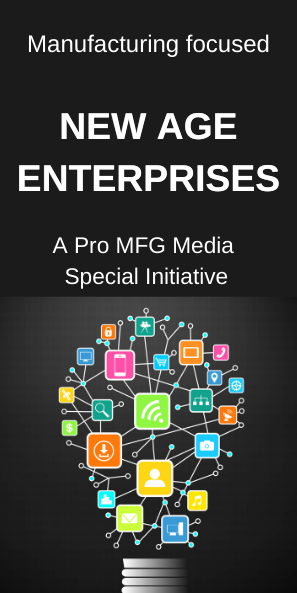Dr. Rene Van Berkel the Representative of the United Nations Industrial Development Organization (UNIDO) in India shares his insights on Circular Economy and the way forward for the Manufacturing sector, as a part of the Sustainable Circular Economy Series – Doing Well by Doing Good, powered by BiofuelCircle.
The world is facing a resource crunch that is only going to become more pronounced with time - this manifests itself in three ways namely accumulation of waste and pollutants, degradation of nature and climate change
"All of this has one cause and that is the unsustainable use of natural resources including water, materials and energy," says Dr. Rene Van Berkel, representative of UNIDO in India.
UNIDO is proposing a huge attitudinal shift from a linear economy to a circular economy. "We need to move away from a take-make-use-throwaway model to a take-make-use-remake circular economy model."
The manufacturing sector has a tremendous part to play in this change. He explains that the manufacturing sector's contribution to greenhouse gas emissions has increased from 15% in 1995 to 23% in 2015 (six years later those figures have probably compounded even further). Now these GHG emissions emerged largely from the manufacturing of materials used in the production of homes and cars.
Berkel has a set of key pointers that can be picked up by various players in the manufacturing value chain. He underscores that development cannot be hampered in the name of sustainability "We define a circular economy as an industrial economy - we still need to manufacture the materials needed for goods and services," Berkel underscores. The roadmap instead involves
● Building products that are built to last
● Maintaining the value of products for as long as possible
● Reducing the generation of waste and pollution by returning products, parts and materials into use several times. Berkel offers the instance of recycled plastic: the plastic is used to make roads, but what is the plan when the road breaks down?
● Use of renewable energy
For manufacturing sector stakeholders and businesses still trying to wrap their heads around circular economy, one could explain it as an extension of recycling. The universe that is circular economy, however, goes beyond reduce-reuse-recycle to also include rethink, remanufacture, repurpose, refurbish, research and renewable energy. Berkel envisions the death of "end of use" products because everything should become a raw material for re-manufacturing.
To make the concept easier for governments, sectors, stakeholders and individual businesses to adopt, UNIDO proposes three simple guidelines:
● Maximize the substitution of non-renewable resources
● Improve the efficiency of use of all resources
● Value recovery from all waste
Business models basically need to put focus on value creation, value preservation and value recovery from natural resources. The manufacturing sector can achieve this value retention by refurbishment, repair and direct reuse of essentials such as vehicle parts, heavy duty equipment parts and industrial digital printers. Berkel says that this could result in a 79% to 99% reduction in the sector's GHG emissions.
Lastly Berkel invited manufacturing businesses to consider material efficiency, or the use of renewable materials that can be assimilated back into nature at sustainable rates. He says that material efficiency is key to achieving the 1.5 degrees Celsius goal set by the Paris Agreement. This could help India reduce GHG emissions by 50% to 70% in residential buildings and 39% to 53% in passenger cars.
Rethinking our business models is no longer optional. Moreover, Berkel estimates that material conservation alone can help businesses attain cost savings of 15% to 80%.
Dr. Rene Van Berkel
Dr. Rene Van Berkel is the Representative of the United Nations Industrial Development Organization (UNIDO) in India. Previously he was UNIDO Unit Chief of Cleaner and Sustainable Production and was responsible for UNIDO’s contribution to the global Resource Efficient and Cleaner Production (RECP) programme which is operational in some 50 emerging and developing countries and supports the organization’s Green Industry Initiative. Between 1999 and 2006 he was Australia’s first full professor of Cleaner Production at Curtin University of Technology in Perth and between 1989 and 1999 he held various research and leadership positions at the University of Amsterdam, The Netherlands. He is an environmental scientist by education and holds master’s and doctoral degrees from Wageningen University and University of Amsterdam respectively, both in The Netherlands.
Throughout his career, he has worked at the interface of academia, government and industry to foster the application of cleaner production, eco-efficiency and industrial ecology practices and techniques in a wide range of industry sectors, including manufacturing, minerals, agriculture, food and beverages, health and services and crafts. Since 1993 he has been active in fostering the adaptation and adoption of cleaner production and industrial ecology in developing and emerging economies in particular in Asia and Eastern Europe.
NEWSLETTER
TRENDING ON PRO MFG
MORE FROM THE SECTION








